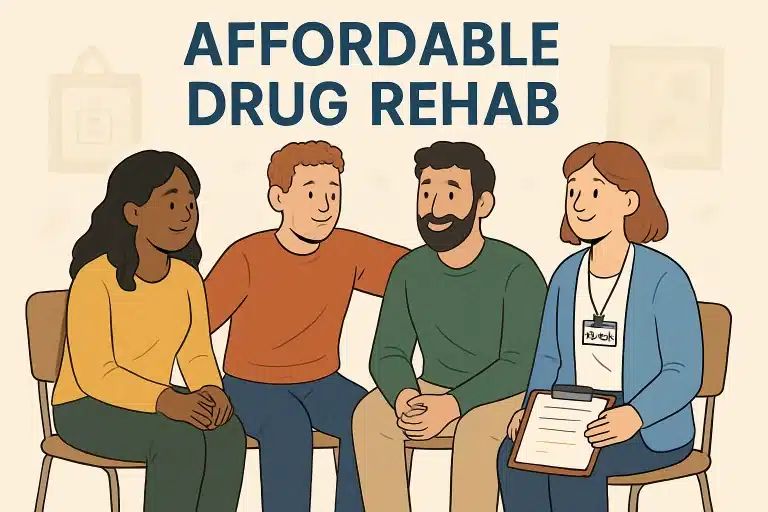Key Takeaways
- Outpatient programs offer flexibility and are generally more affordable than inpatient care.
- Sliding-scale payment models adjust fees based on income, making treatment broadly accessible.
- Community-supported recovery groups provide critical free support for sustained sobriety.
- Government-funded programs and non-profit organizations deliver quality care at reduced or no cost.
- Online therapy and telehealth options introduce convenience and lower prices for essential treatment.
Seeking help for substance use disorder is a transformative and courageous decision, yet the financial considerations weigh heavily on many individuals and families. Fortunately, a growing landscape of affordable solutions is emerging to make effective recovery accessible to all. Exploring rehabs in Virginia that accept Medicaid is one proactive step toward finding quality care without overwhelming costs.
Accessible recovery is not confined to a single approach. From outpatient services to community support groups, and from government assistance to modern online therapy options, there are multiple pathways available that accommodate different budgets and lifestyles. By identifying the best-fit solution, anyone can embark on a meaningful recovery journey without the fear of financial strain.
Outpatient Programs: Flexible and Cost-Effective
Outpatient drug rehab programs are a practical choice for many seeking treatment while maintaining their work, school, or family responsibilities. These programs typically involve scheduled counseling sessions, relapse prevention education, and therapy, without requiring overnight stays. This translates into substantially lower costs compared to inpatient residential programs. However, outpatient success hinges on a commitment to self-discipline and strong support systems, as daily life remains relatively unchanged outside of therapy hours.
Outpatient care has expanded nationwide and can be found in a variety of local community health centers, making it a mainstream and reliable entry point into addiction recovery. The flexibility of these programs enables participants to integrate their treatment with day-to-day responsibilities, thereby reducing overall disruption and cost.
Sliding-Scale Payment Models: Tailored to Your Financial Situation
Understanding that no two financial circumstances are alike, many drug rehab centers use a sliding-scale fee structure. This model assesses each individual’s economic capacity, often calculated based on household income, and sets monthly or session fees accordingly. As a result, quality addiction services become attainable for those who might otherwise be excluded due to cost.
Facilities and community clinics nationwide offer financial counseling, assistance with insurance verification, and payment plans to further ease the burden. The flexibility of payment plans can provide peace of mind, allowing focus to remain on recovery rather than accounting balances.
Community-Supported Recovery Groups: Free Support Networks
Many people maintain long-term sobriety through the encouragement and accountability of free, peer-led recovery groups. Organizations like Alcoholics Anonymous (AA), Narcotics Anonymous (NA), and SMART Recovery deliver ongoing support without membership fees or prerequisites. These meetings are available in thousands of locations across the U.S., both in-person and online, and are rooted in inclusivity and mutual aid.
By sharing experiences in a non-judgmental setting, members find hope and practical strategies for handling everyday challenges. For many, the routine of regular meetings provides structure and helps reduce feelings of isolation that can impact recovery.
Government-Funded Programs: Accessible Treatment Options
State and federal agencies, such as the Substance Abuse and Mental Health Services Administration (SAMHSA), fund treatment for uninsured individuals or those whose insurance doesn’t cover necessary rehab services. Federal block grants and Medicaid often provide coverage for services such as detoxification, counseling, and long-term therapy.
Eligibility typically requires documentation, including proof of income and residency; however, for those in need, these programs serve as a safety net. Even if you have been denied insurance coverage, these government-backed solutions may provide access to treatment that would otherwise be unaffordable.
Non-Profit Organizations: Compassionate Care at Low Costs
In addition to government support, many nonprofit organizations offer high-quality rehabilitation programs at little to no cost to qualified applicants. These institutions, including secular organizations and faith-based groups like The Salvation Army Adult Rehabilitation Center, not only provide essential treatment components but also foster a supportive, values-driven atmosphere conducive to healing.
Non-profits may also connect clients to further resources such as job placement, housing assistance, or ongoing mental health services—components critical for lasting recovery but often underfunded in traditional settings.
Online Therapy and Telehealth Services: Convenient and Affordable
Telehealth and online therapy platforms have created new opportunities for affordable addiction care, breaking down geographical and scheduling barriers. Patients can access counseling, group meetings, and even medication-assisted treatment from the privacy and comfort of home—often at lower rates than in-person providers.
These digital services are particularly useful for individuals in rural or underserved areas who may struggle to attend appointments in person. Additionally, the anonymity offered by online platforms can empower people to seek help sooner.
Conclusion
Regardless of the financial landscape, affordable rehab solutions are available for everyone seeking recovery. Outpatient programs, sliding-scale models, supportive communities, government funding, non-profit organizations, and telehealth have broadened the horizon of accessible treatment. By leveraging these options, every individual can create a personalized recovery plan that is both affordable and hopeful.
Read more: How a Thoughtful Review Process Shapes a Brand’s Reputation
Creative Outdoor Lighting Ideas for Gorgeous Evenings
How Whistleblower Laws Safeguard Employee Rights










